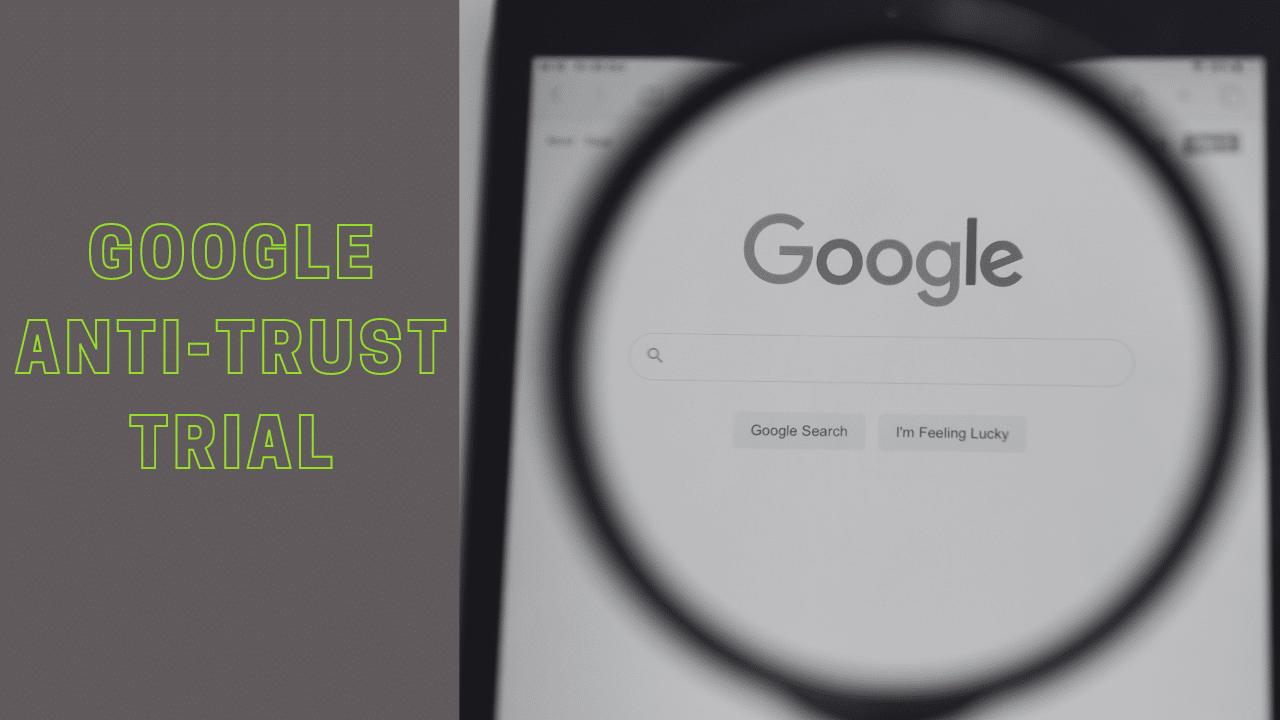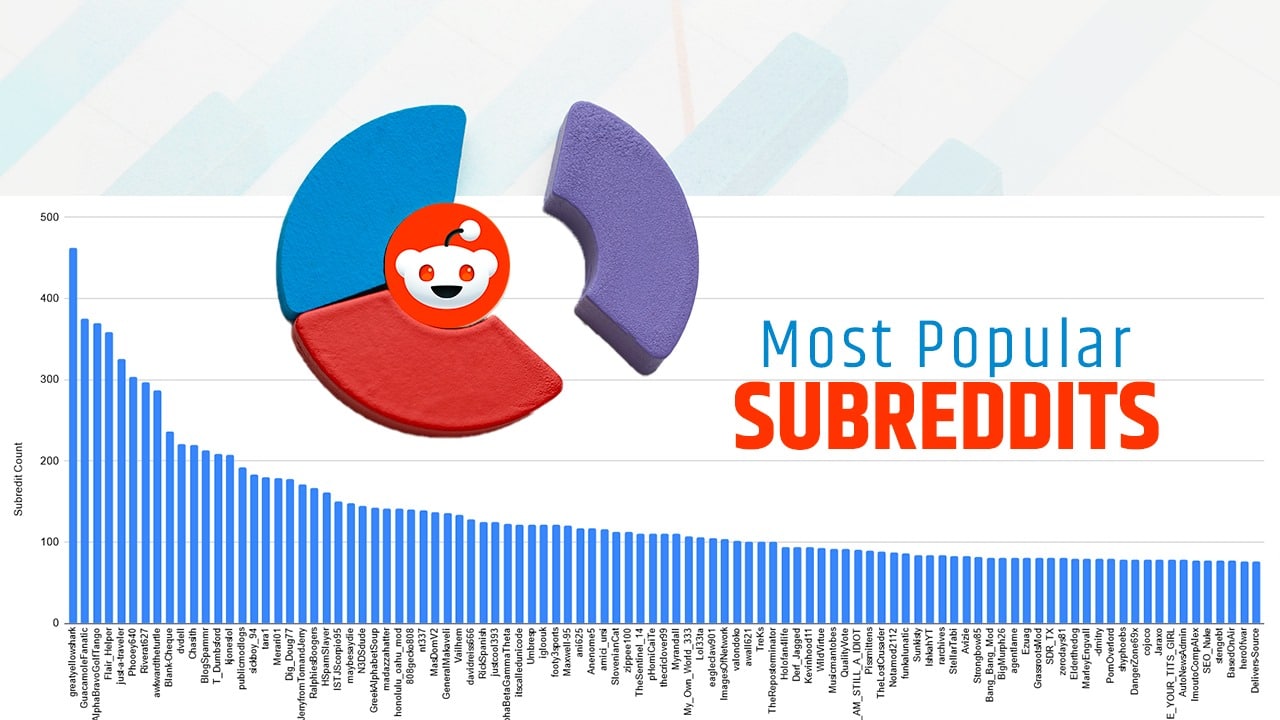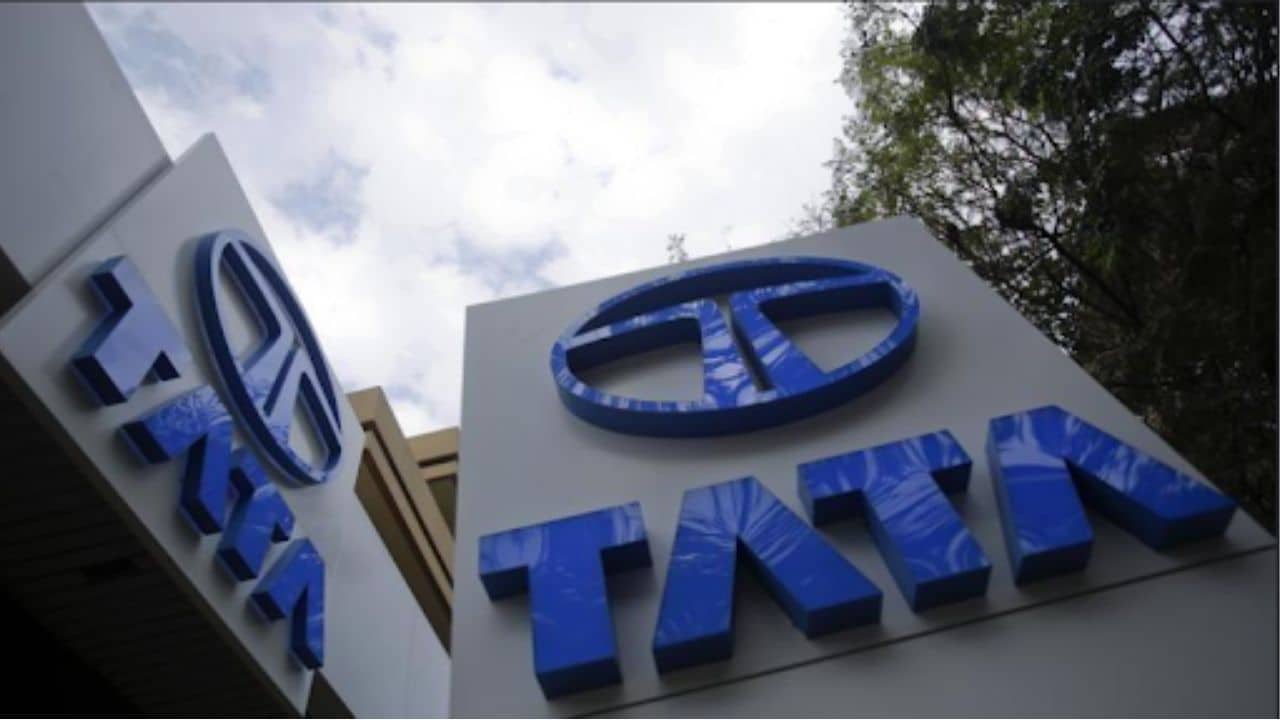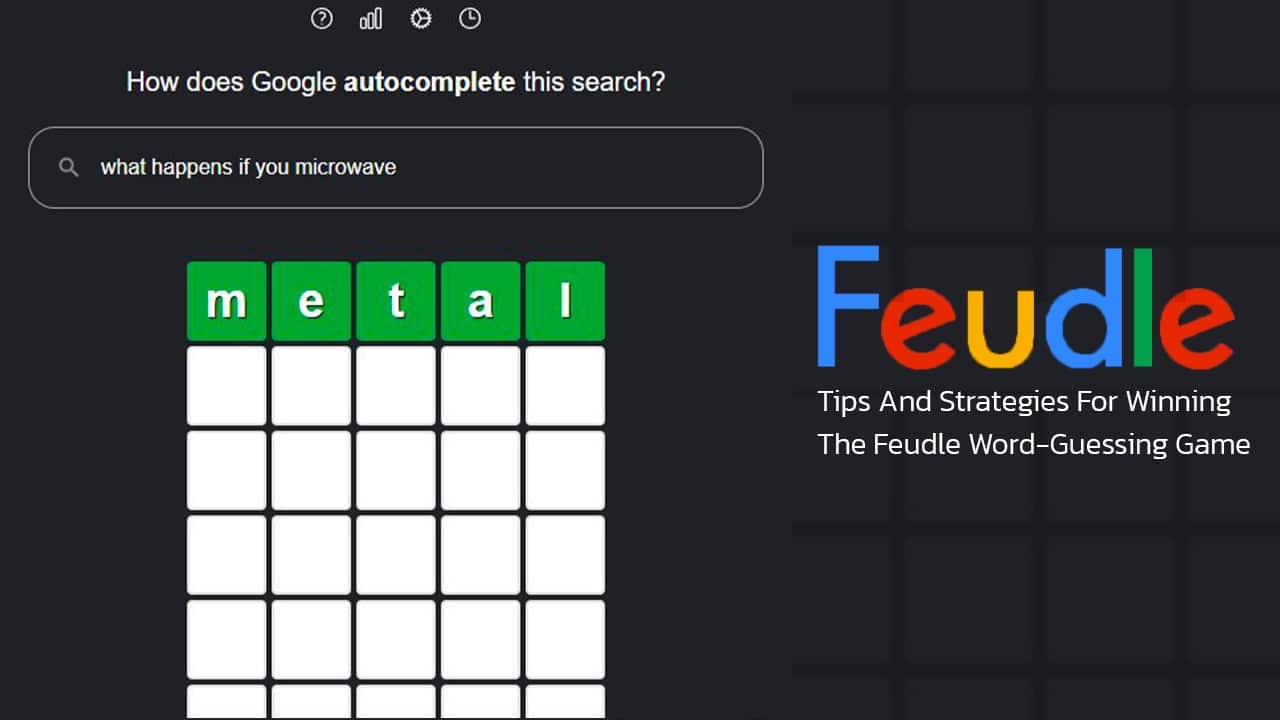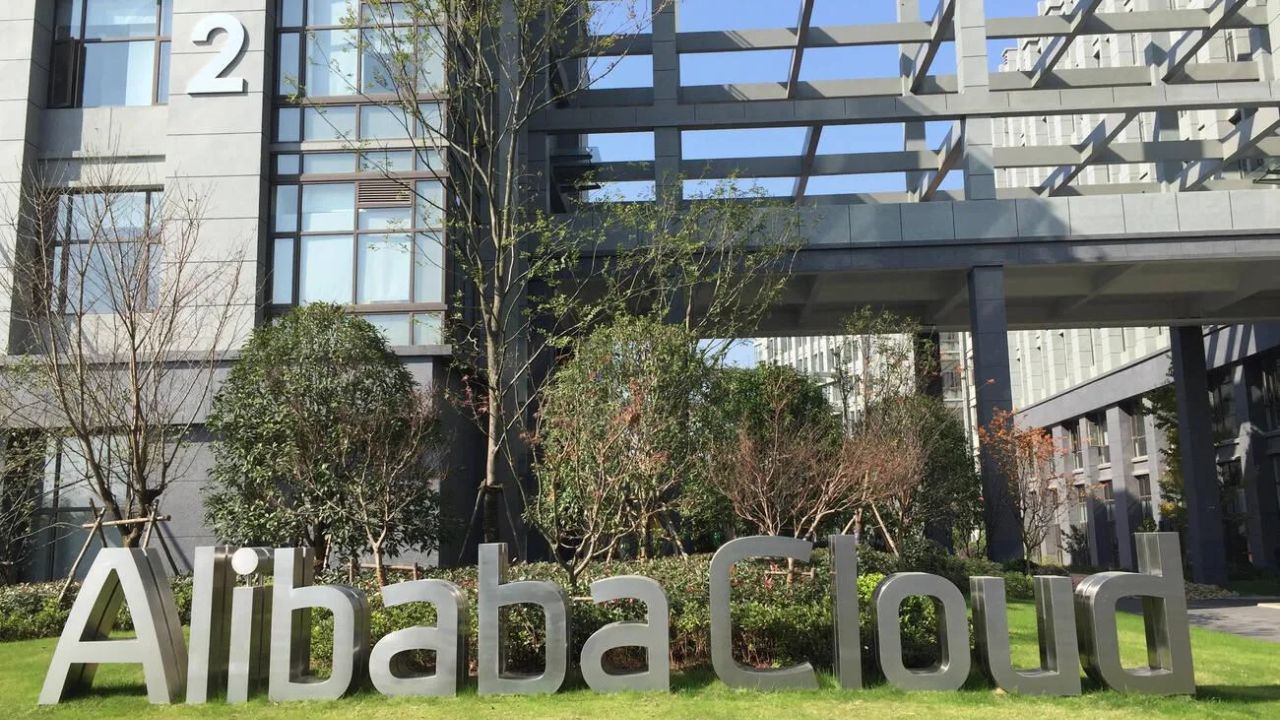Are you concerned about the antitrust lawsuit against tech giant Google? Have you been wondering what is going on with the landmark case and its potential implications for privacy, competition, and more? This blog post seeks to provide a look into the Google Antitrust Case – from key updates to relevant news pieces – all in one place.
Keep reading to find out what you need to know with the latest updates about this groundbreaking trial! You’ll learn why its outcome could have far-reaching consequences for our digital economy and us as consumers.
So fasten your seatbelts and let’s dive in!
- The US Department of Justice has filed an antitrust lawsuit against Google, accusing it of monopolizing search, demanding exclusivity, and shutting out competitors.
- This landmark court case has the potential to reshape how consumers interact with online services if Google is found to be anti-competitive.
- The case revolves around Google’s alleged predatory behavior in dominating the digital ad market over decades.
- Possible consequences include dramatic changes in how information is accessed and even the breakup of tech giants to promote fair competition.
- The trial’s outcome will have far-reaching implications for both mainstream users and businesses.
Overview of the Google Antitrust Case
The US Department of Justice has brought a landmark court case against Google, alleging that the tech company is unlawfully monopolizing search, demanding exclusivity, and shutting out rivals.
Landmark Court Case Brought by US Justice Department
The US DOJ has filed an antitrust lawsuit against Google, claiming that the tech giant is stifling competition and abusing its power in the search engine market. This case carries major consequences as it could reshape how consumers interact with online services if Google is found to be anti-competitive.
The DOJ claims that decades’ worth of evidence shows alleged predatory behavior on the part of Google in dominating the digital ad market. If found guilty, this could result in dramatic changes in how people access information through dominant tech companies or even a break-up of those companies in order to promote fair competition.
With such intense scrutiny over how these powerful tech giants operate, no matter what happens with this trial, it will have far-reaching implications for both mainstream users and businesses alike.
Potential Implications for Google and the Future of the Internet
The Google antitrust trial has the power to bring major changes not just to Google but also to the future of the Internet in general. The landmark court case, brought by the US Justice Department, is seen as a critical test for Big Tech companies and could potentially hamper Google’s ability to dominate modern searches that it had been used to doing so far.
At stake are billions of dollars paid by the company to maintain its dominance over search engines like Apple and Yahoo, thereby eliminating competition that could limit consumer choice due to monopolistic practices.
If ended successfully with some concessions from Google, it could reshape how we use technology today – redirecting how ads act online, reinstating legal access to information sources beyond mere Mega-Corps with strong algorithms & data analysis capability, and shifting away from relying on those couples companies for our overall internet usage experience.
Key Updates and Revelations
Google was accused of unlawful monopolizing search, deals to shut out rivals, deep pockets, and exclusive deals to maintain its dominant internet search engine status.
Google’s Market Share and Claims of Superiority
The search engine giant Google holds an estimated 90% market share in the U.S. and has been long argued to offer a superior product that accounts for its remarkable dominance over the digital landscape.
Google maintains that it is owed this exceptional status, claiming that shoppers choose it precisely because of its high quality and unparalleled ease of use; meaning there is naturally less competition in regard to consumer behavior.
However, their precise position on questions of legal localization remains disputed, with lawyers arguing whether or not having such commanding leverage in the market should be considered anti-competitive and even illegal territory.
Allegations of Hiding and Destroying Evidence
Despite rigid legal regulations, the U.S. Department of Justice has alleged that Google intentionally destroyed written records that were important to their antitrust lawsuit against the tech giant.
Kenneth Dintzer, an attorney for the Justice Department, highlighted this issue as well as requesting sanctions for such behavior, which they believe would damage their case against Google and possibly limit means by which consumers could receive search results in a fair manner. At the same time, documents have also been requested from Google under excessive confidentiality requests, which could make it difficult to hold them accountable if anything untoward does emerge from redacted files made available to public view during proceedings of the trial.
Apple’s Stance on Default Search Engine
Apple has been involved as an important witness in the ongoing Google anti-trust trial. Its involvement hinges largely upon its stance on default search engines, as such a decision can have far-reaching implications for competition in the market.
Evidence brought forward during the legal proceedings displays that Apple has financial ties with both Bing and Yahoo!, as well as being paid by Google to remain in their default status, at least up until recently.
In order to decide whether or not this agreement is anti-competitive, senior Apple executives have had to testify regarding the determining process that decided which search engine should be chosen.
This testimony could potentially reveal how large tech conglomerates like Apple use their powerful position to influence decisions that would shape the future of digital markets around them.
Google’s Payment to Maintain Default Status
is a major component of the US Justice Department’s antitrust case against Google. The government alleges that Google uses mandatory contracts to enforce its use as the default search engine in a host of different hardware and pays billions annually for this preferential status.
These practices have restricted user choice for competitors and inhibited fair competition within the digital economy. By effectively freezing out any possible rivals from gaining entry into what can be described as an online “monopoly,” Google has allegedly been able to maintain its dominant market share and control prices with relative ease.
The lawsuit seeks to put an end to these tactics and level the playing field by eliminating unfair advantages garnered through exclusive agreements. This would increase consumer options while also potentially opening up smaller companies like DuckDuckGo, offering similar services but unable to compete given current conditions, giving users more choices when it comes to which search engine they prefer or want access to on their preferred devices.
Google’s Opinion of Competition
Google has long maintained that its actions are legal and mainstream, claiming to adhere to applicable laws to the letter. Despite this, many of their competitors – including Microsoft, Oracle, and Apple- have accused Google of using its powerful clout to crowd out rivals in search engine markets, thereby cornering the market entirely into its own grasp by stifling any competition from other tech giants.
While they deny operating anticompetitive practices in regards to their extensions or applications within software development environments such as Android OS; there is much evidence against them with allegations supporting Google’s abuse of dominance over a vast swath of digital services already integrated into billions of hardware devices worldwide via defaults settings.
If proven guilty during this landmark court case brought by the US Justice Department, significant concessions on behalf of the tech giant would ensure future access for smaller players trying to gain traction amidst large incumbent players.
Concerns about Google’s Practices
Evidence has been presented to suggest that Google had quietly increased its ad prices without informing its advertisers, a dispute over public access to trial files was also raised, and evidence related to the case was reportedly removed from the United States Department of Justice website.
Quietly Increasing AD Prices Without Informing Advertisers
Google’s alleged practice of quietly raising ad prices with impact on Google and its advertisers has concerned many. This raises questions about competition fairness for other companies, not to mention the unawareness of advertisers about changes in the pricing structure as they are kept hidden by Google.
While nobody may be sure how widespread this problem is, it is still considered a major challenge for businesses that rely heavily on advertising income via search engine results pages (SERPs).
As SERP rankings become more competitive, increasing costs make it difficult for small players to participate in what could have been an efficient market prior to such practices being employed by Google.
Legal Dispute Over Public Access to Trial Files
The legal dispute over public access to trial files is related to the Google Anti-Trust Trial and centers around concerns about the tech company’s practices. In its complaint, the US Department of Justice argues that by paying billions of dollars to maintain its position as a default search engine, Google has illegally used its market dominance to protect an illegal monopoly.
This case has become even more significant following the Department’s recent removal of documents related to it from public access — raising questions about how much transparency will be allowed throughout this landmark trial.
Public access is necessary for citizens who want to understand more deeply any proceedings such as this one, which can have broad implications for our economy and future technologies.
Removal of Google Evidence from the DOJ Website
Recently, the US Department of Justice removed documents related to Google’s antitrust trial from its website. This has raised questions about transparency and fairness in the proceedings, as members of the public have been denied access to information that could potentially be key evidence in deciding the outcome of this landmark case.
This change follows a legal dispute over public access to some additional files containing email correspondence between Google executives, charts, and presentations that may impact how government entities assess allegations against them.
Additionally, experts believe this lack of public access could make it difficult for outside groups to understand certain issues involving potential monopoly accusations against Google or any other tech giant facing scrutiny by the DOJ.
Highlights from the Google Antitrust Trial
Key documents were excluded from public view, offering insight into how Google’s defaults and preferences have contributed to maintaining its role as the world’s leading search engine.
Documents Excluded from Public View
In the Google anti-trust trial, the US Department of Justice recently removed public access to emails, charts, and internal presentations from Alphabet Inc. in relation to the antitrust case.
This decision limits public knowledge about Google’s alleged anticompetitive actions and could have serious consequences for understanding what is disclosed throughout the trial. This exclusion may also hamper a full evaluation of any claims against Google as relevant evidence has been restricted from public view.
These documents are undoubtedly significant given their relevance to such a landmark case so it is important that all relevant information is available for scrutiny without legal restrictions imposed upon them.
Analysis of Defaults and Preferences
The analysis of defaults and preferences is a key part of the Google anti-trust trial, as it will be used to determine whether or not Google’s actions were anti-competitive and limited consumer choice. It involves an evaluation of default configurations and user choices that can potentially influence consumer behavior.
This includes examining the use of default settings, services, search engine preference selection for devices such as smartphones, browsers on PCs/laptops, etc., and Automatic pre-populated preferences when changing preferences in different applications, among other aspects related to the design of a system or product.
For example, looking into Apple’s representation in court regarding Google’s payment to maintain its default status as the preferred Search Engine on iPhones may help evaluate how effective these practices have been in enabling Google to extend dominance over online markets.
Expectations for the Trial
As the landmark antitrust case against Google begins, expectations are growing for how far-reaching and impactful the trial could be. With over 10 weeks of potentially revelatory testimony from key executives at Google on the docket, this trial is expected to have significant implications for the future of a giant in tech.
Not only would it likely rewrite the rules under which Google operates, but also adjust regulations pertaining to big tech companies’ activities going forward. Its significance has not gone unnoticed either; with eyes from media outlets around tracking closely as well as legal pros analyzing each move between both parties – this is one court battle you won’t want to miss! As more information emerges throughout these proceedings, so too will our understanding of how powerful regulation can be in upending monopolistic practices among large businesses like that held by Google online today.
Relevant News and Commentary
Keep up with the latest news and opinions from legal analysts around the world as this historic antitrust trial unfolds.
Coverage of the Trial
Whether we’re looking at news sites, blogs, or social media networks, the coverage of the Google antitrust trial has dominated headlines in recent weeks. Newspapers such as The Wall Street Journal and the New York Times have reported on key updates and revelations throughout the case so far.
Numerous commentators, including lawyers from both sides and experts in technological regulation, have weighed in with their own thoughts on possible outcomes. As the major tech giants Microsoft, Apple, and Amazon continue to be scrutinized for potential violations of antitrust laws under EU regulations, analysis of how this specific trial may impact similar ongoing cases is growing rapidly.
With observers continuing to examine just what legal actions should be taken against large companies that have secured a dominant position within their respective markets – not only within America but around the world – all eyes are locked on this historic legal dispute playing out day by day.
Opinions on Google’s Actions
The antitrust case against Google has spurred a variety of opinions on the tech giant’s behavior, ranging from supportive defenses to staunch condemnations. The analysis of defaults and preferences in the trial has been especially contentious, with some people arguing that Google is simply leveraging its market dominance while others believe this practice undermines competition for users’ data and attention.
Furthermore, experts have raised concerns about whether or not it is right for any company to control such broad access to information through user default settings which determines what we see when using various technologies.
There are other drawbacks as well; For example, Google was accused of quietly increasing ad prices without informing advertisers – an action seen by many as unfair and anti-competitive behaviour.
Potential Impact on the Digital Economy
How Google’s decisions, past and present, could impact the digital landscape for years to come is an important part of the trial; readers should be aware of its importance in determining the future of our online lives.
Influence of Google’s Default Settings on Devices
As highlighted in the ongoing antitrust trial, Google’s presence is deeply embedded into the fabric of our digital economy. Through exclusive agreements with device makers and software developers, Google has established itself as the primary search provider across various platforms, including iOS and Android devices.
With its default settings dominating user preference and experience on their devices, it has become increasingly difficult for competitors to gain market share. This strategic monopolization of the Internet search market presents further questions regarding the power imbalance held by tech giants like Google.
Even though Google argues that it still faces competition from other search engines online, its influence on device defaults continues to remain a central factor in determining consumer behavior; creating an environment where users need to seek out alternative options actively.
Analysis of the Antitrust Case’s Significance
The antitrust case against Google has the potential to create a major ripple effect throughout the digital economy. The central focus of this case is on how Google leverages its default options and exclusivity agreements with mobile phone manufacturers in order to gain an advantage over competitors.
This has resulted in more people using Google products and services than other products, leading to a monopoly situation where no or few companies can compete against them. It’s also allowed Google to keep ad prices higher without informing advertisers while still being one of their preferred search engine partners due to having many cellphone devices set by default to use it as their preinstalled search engine.
If found guilty, legislative action such as breaking up certain elements of the company may need to be taken into consideration, which could greatly reduce or even stop its current behaviors within the market and allow new competition for end-users which could be beneficial for everyone.
Read Also: How Google’s New Tool Will Trace AI Images
Related Topics and Discussions
Dive into a discussion on privacy concerns, internet regulation, algorithms, and data collection to explore the power and influence of tech companies.
Privacy Concerns and Internet Regulation
The push for stronger internet regulations is driven by the issues surrounding Google’s practices. In recent history, the tech titan has been accused of engaging in anticompetitive behavior and exhibiting market dominance with an almost overwhelming share of the search engine market.
While opaque data collection and targeted algorithms remain huge public concerns, there have also been allegations that Google hides evidence damaging its interests or has even destroyed this material.
These reports raise dangerous questions about how far companies can go to protect their own interests while ensuring online privacy isn’t compromised along the way. As seen in other cases worldwide, such as GDPR and CCPA, tighter regulation is being called for to ensure consumer safety isn’t sacrificed due to lack of oversight from authorities, such as interference over payment deals between Apple & Google which show potential conflicts of interest.
Impact of Algorithms and Data Collection
In the online world, algorithms and data play a significant yet controversial role in how search results are presented to users. With the Google Anti-Trust Trial, we’ve seen an exploration of the importance of computing algorithms versus the reliance on data for successful businesses.
The trail brings attention to possible abuse of power by tech giants such as Google and its ability to control what information is surfaced, creating access advantages not available for competitors.
Additionally, concerns have risen over governmental or corporate control of data within algorithmic systems that could lead to biases or outdated information served up in spite of recent developments regarding a particular topic being searched.
Along with tweaking algorithms for its own gain -Google has been accused and investigated for using blacklists, manipulation, and denial tactics against third parties competitively without transparency– all contributing factors that impact how search results are surfaced.
Discussion on the Power and Influence of Tech Companies
Tech giants like Google, Apple, Amazon, and Facebook have an outstanding influence over the digital economy. With their ever-growing dominance in the market share, these technology companies have taken control of many aspects of our daily lives.
Their services are pervasive; from search engines to video streaming platforms, they are difficult to avoid or alternate with other providers if needed. The US Justice Department’s landmark anti-trust case against Google is exploring the alleged monopolistic practices implemented by the search giant that ultimately stifle competition and limit consumer choice online.
Allegations include secretly raising advertising prices for publishers without informing them and punishing those who sought alternatives to Google’s services – such as its unfair payment of a commission towards Apple if it was kept as a default browser instead of another company’s product – claiming that this is what enabled it remains king in internet search markets worldwide. If you’re interested, also read about the latest Apple Watches.
Frequently Asked Questions (FAQs)
It’s time to learn something more. Here are a few FAQs on this topic.
1. What is the Google Anti-Trust Trial?
The Google Anti-Trust Trial is a legal case between US regulators and the tech giant company, Google. The trial was started to determine whether or not Google has abused its power in digital markets by violating antitrust laws.
2. When did the trial begin?
The legal proceedings began in October 2020 with an opening statement from both sides of the court case.
3. Who is involved in this trial?
This trial involves several government entities such as federal agencies like FTC and DOJ, state attorneys general, legislators on both sides of Congress, consumer advocacy groups, tech industry representatives, and ordinary consumers who have been affected by potential anti-trust violations from Google’s practices over market dominance on search engine access.
Takeaway
The Google Anti-Trust Trial is a landmark event that has potentially far-reaching implications for internet use, competition, and consumer choice. The outcome of the case could significantly affect how companies in the digital economy operate, especially when it comes to access and data collection.
With Google currently dominating many online services such as search, its alleged violation of antitrust laws threatens to limit users’ options and lead to an increase in their costs; something which competition law was specifically designed to avoid.
This high-profile case will prove crucial not only for assessing Google’s practices over recent years but also for understanding the potential consequences of allowing tech giants too much power within the industry.


